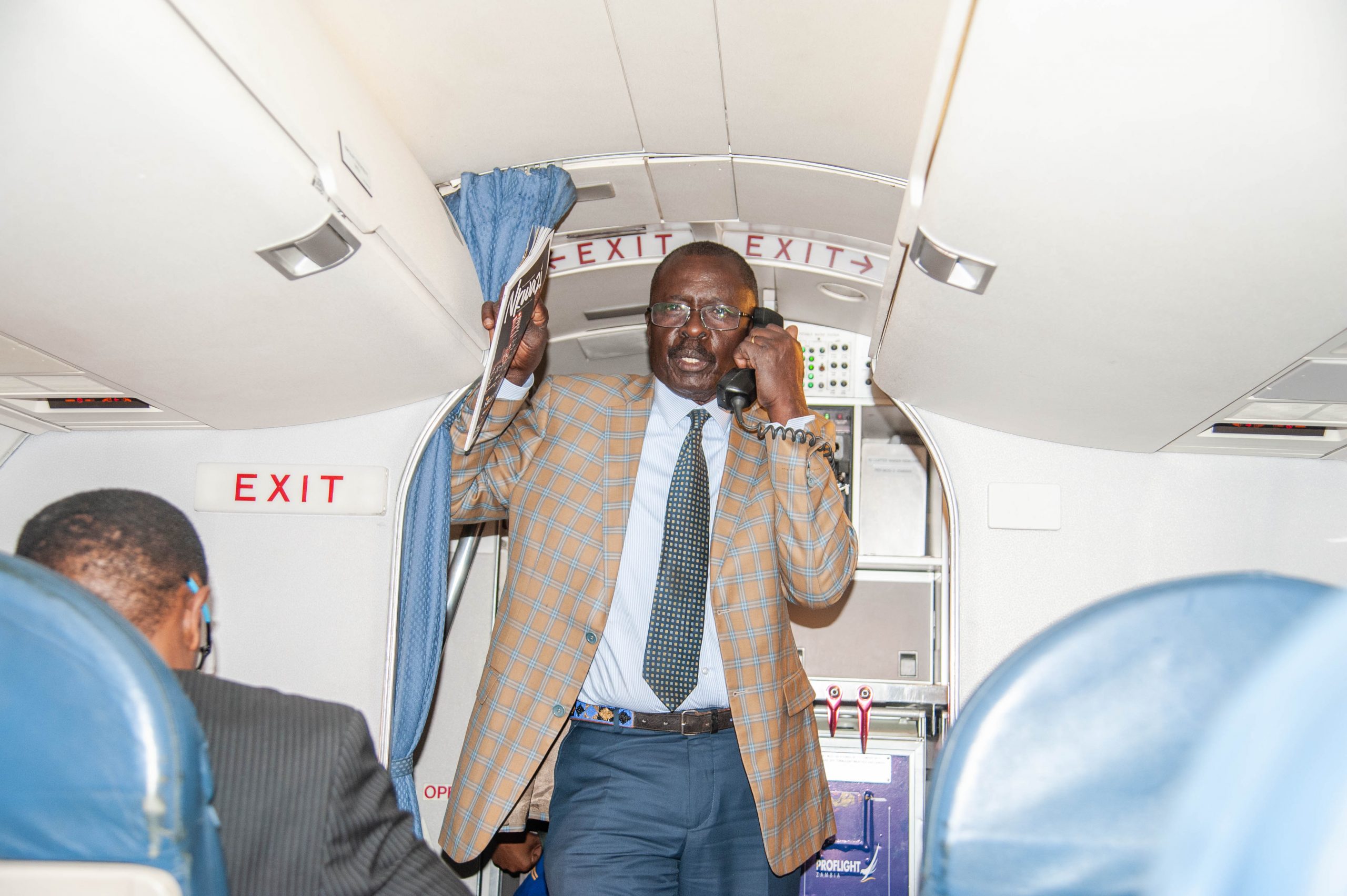Lusaka, Zambia – The aviation industry lost a true pioneer and stalwart in July with the passing of Captain Philip Lemba.
Captain Lemba’s career path in aviation started when he was 24-years-old when he was selected as one of the brightest Zambian nationals to train as pilots in 1965 – one of the first ten young Zambian trainee pilots selected to fly after independence.
Captain Lemba would nostalgically tell us, “Aviation as a profession for black Zambians was the brainchild of the late Valentine Musakanya, who was then one of the very few educated Africans in government service.
It was Mr Musakanya who introduced the programme that made it possible for the government to sponsor Africans to learn to fly in flying clubs, and subsequently the formation of the Zambian Air Force in 1965. It was an exciting time for the young pilot who joined the other ten cadets in Livingstone to start their careers as pilots flying the Chipmunk and Beaver aircrafts.

In 1967 seven cadets, along with Captain Lemba were award- ed their wings in Livingstone by the Father of the Nation, the First Republican President Dr Kenneth Kaunda.
Captain Lemba’s career started in the Air Force where he was given the opportunity to follow his dream and passion, and he spent ten years in the service. He flew as one of the first indigenous presidential pilots on the Hawker Siddeley 748-2. He went on to become Wing Commander at ZAF Lusaka.
When he retired from the Air Force, he joined Zambia Airways; he flew HS748, B737 and B707 before becoming captain on HS748.
Unfortunately, the days of Beavers and Chipmunks were replaced with large aircraft such as Boeing 707s and the “Nkwazi DC10” operating both domestic routes and long haul international flights.

It was in the dispatch offices of Zambia Airways where Cap- tain Lemba and Proflight’s Managing Director Tony Irwin, met for the first time as they both embarked on an airline career as young men with the national carrier.
Captain Lemba later went on to fly in Kenya and spent 48 years in the cockpit, accruing over 20,000 flying hours, and was one of the driving forces behind Proflight Zambia, which itself celebrated 31 years in operation this year.
Captain Lemba was passionate about the future of our nation’s aviation sector. The country has a long and proud heritage in the industry and it is a legacy that he planned to continue through the growth of Proflight into a respected regional carrier.
His legacy at Proflight
Having shared and exchanged careers in the cockpit of commercial airlines, Captain Lemba, would work with Tony again at Proflight for more than a decade. Serving as the airline’s Director of Government and Industry Affairs he drove Proflight’s local and regional expansion dramatically, as they launched the first international routes to multiple countries in the Southern and Central African regions.
The expansion drive aimed to develop Lusaka as a regional hub, connecting passengers to intercontinental flights from the capital and enabling in-bound visitors to travel easily and reliably to all corners of Zambia at an affordable rate.
He was elevated to the position of Chairman of Proflight’s’ Board of Directors on June 26, 2020, at a time when the avia- tion sector faced its darkest days in the face of the COVID-19 pandemic.

His leadership and vision positioned the company to achieve extraordinary success over time and he worked with the entire Proflight team in continuing to evolve the company for a new stage of growth in the 21st century.
Working with other industry experts in the aviation sector, Captain Lemba was able to direct and shape strategy to chart the way forward for the nation’s commercial aviation sector.
For the love of flying
Through his passion and love for aviation, he was instrumental in helping young Zambian pilots embark on their commercial flying careers with Proflight of which there are now more than 20.
Captain Lemba had an incomparable wealth of experience and strategic vision for Zambia’s local aviation industry, having been a pioneer for many years.
His legacy and lengthy tenure in the industry, in addition to his experience in governance affairs, was an example and foundation for the high achieving flyers he taught.
